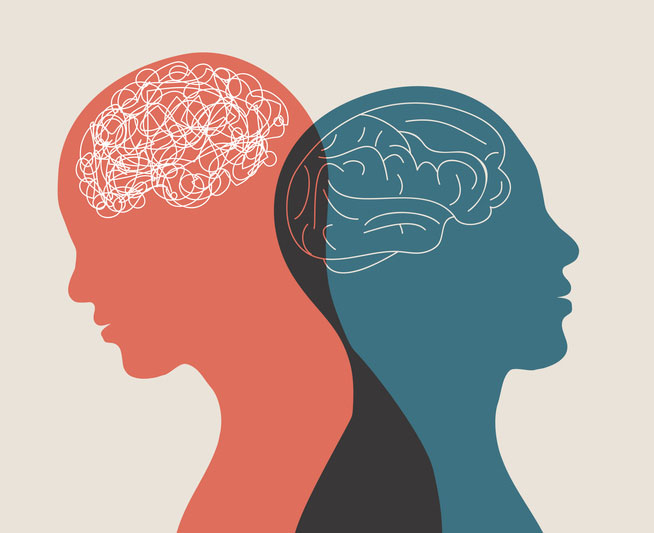
Cognitive Behavioural Therapy (CBT) is a well-known kind of psychotherapy or talk therapy. Individuals participating in this organized strategy work with a mental health counsellor, therapist, or psychotherapist for a certain number of sessions. CBT’s primary purpose is to develop awareness of incorrect or negative thinking processes. It enables people to have a more objective perspective on demanding situations and respond more effectively.
The best psychologist can use CBT or in conjunction with other therapy approaches. It has been demonstrated to be useful in the treatment of a wide range of mental health problems, including depression, PTSD, and eating disorders. CBT is, on the other hand, not confined to persons who have identified mental health issues. It might also be a useful tool for those trying to better their ability to deal with challenging life situations.
CBT, a psychotherapeutic approach, places its primary emphasis on addressing dysfunctional emotions, thoughts, and behaviours by employing solution-oriented strategies. It encourages individuals to confront and challenge unhealthy and distorted thoughts, aiming to establish new, healthier behaviour patterns.
This modality operates under the premise that thoughts and perceptions significantly influence one’s behaviour. With CBT, the best psychologist restructures cognitive pathways, redirecting and altering destructive behaviours.
Cognitive behavioural therapy is an empirically validated treatment with a strong track record of effectiveness, especially in the management of conditions such as anxiety, general stress, anger management, and various other mental health issues.
CBT comprises an array of methods and strategies targeting our cognitive processes, emotions, and behaviours. These encompass a spectrum of interventions, ranging from formal psychotherapeutic modalities to self-improvement techniques. Within the realm of therapeutic practices associated with cognitive behavioural therapy, several distinctive approaches can be identified, including:
Although each variant of cognitive behavioural therapy employs a distinct method, they all share the common goal of addressing the fundamental thought patterns that contribute to psychological distress.
Certain psychotherapy approaches delve into past experiences to elucidate present emotions. But CBT distinguishes itself by concentrating on existing thoughts and convictions. It places a strong emphasis on recognizing, questioning, and altering an individual’s perspective on a given situation.
Cognitive Behavioural Therapy seeks to reshape any thought patterns and actions that hinder a person from living their desired life. This process entails recognising negative perspectives or distortions that influence behaviour. Such distorted viewpoints can render an individual more susceptible to:
When individuals acquire fearful or unproductive thinking patterns, these tendencies can become automatic. CBT’s primary emphasis is on questioning these reflexive thoughts and measuring them against actual circumstances.
When a person begins to perceive a specific situation in a more beneficial light, their distress often diminishes, enabling them to subsequently take actions or make decisions that are more conducive to their long-term well-being.
Before opting for CBT, there are several factors to consider:
CBT is a psychotherapy technique in which individuals learn how to adjust their perceptions in order to impact their behaviour and mood favourably. This versatile treatment can help with a variety of mental health issues, ranging from depression to chronic pain. A therapist and their client work together to define goals and expected outcomes, with the individual taking an active role in the therapy to reap the advantages.
Those seeking CBT should seek the advice of a certified practitioner, such as Dr. Pankaja at the Mental Wellness Centre. She delivers a holistic and personalised therapy strategy, painstakingly crafted to meet the individual’s particular mental health challenges, based on her significant expertise as a psychotherapist and clinical psychologist.
Dr. Pankaja is a recognized clinical psychologist, hypnotherapist, and psychotherapist. She is an expert in mental health and well-being. She has committed her career to research, clinical practise, and imparting vital insights through an all-inclusive treatment plan, with a genuine dedication to helping patients enjoy better, more meaningful lives.